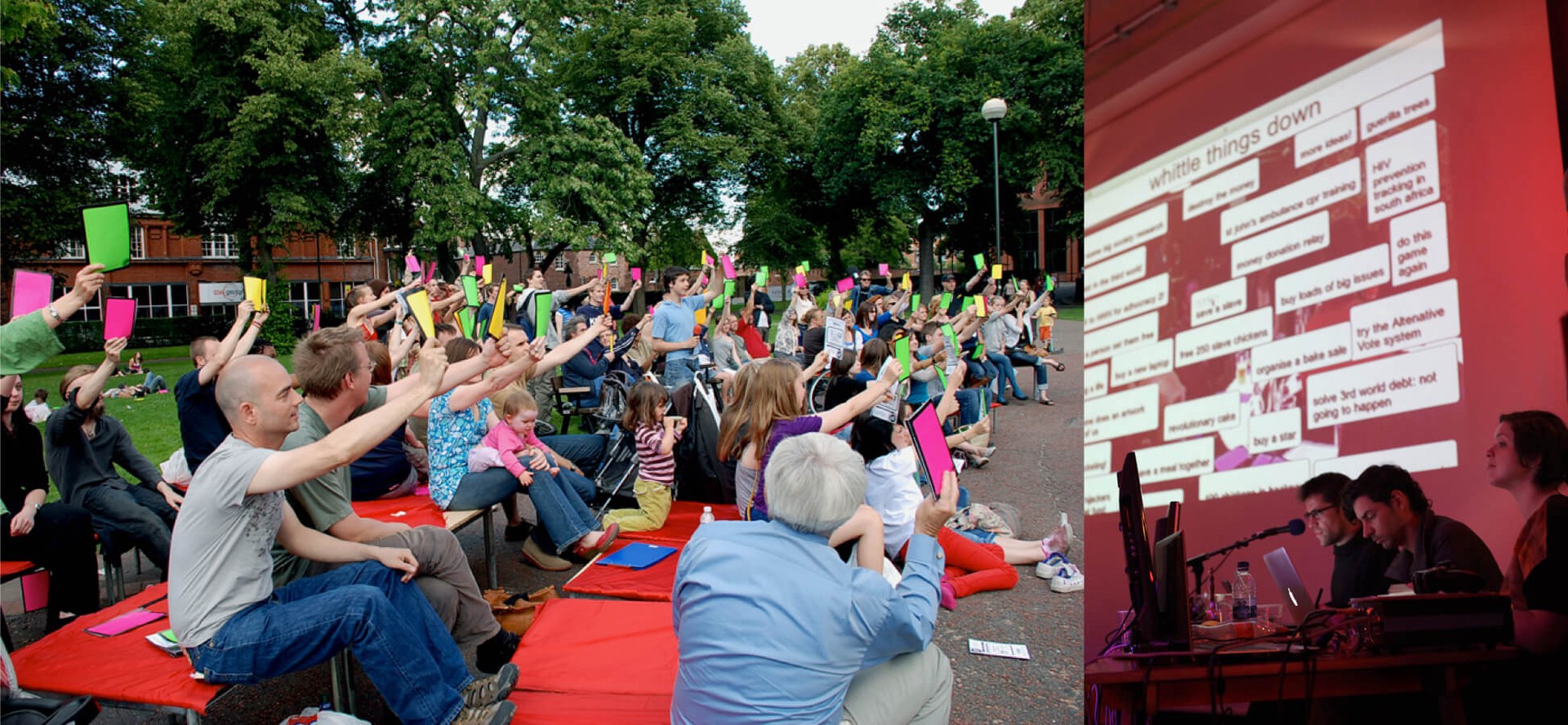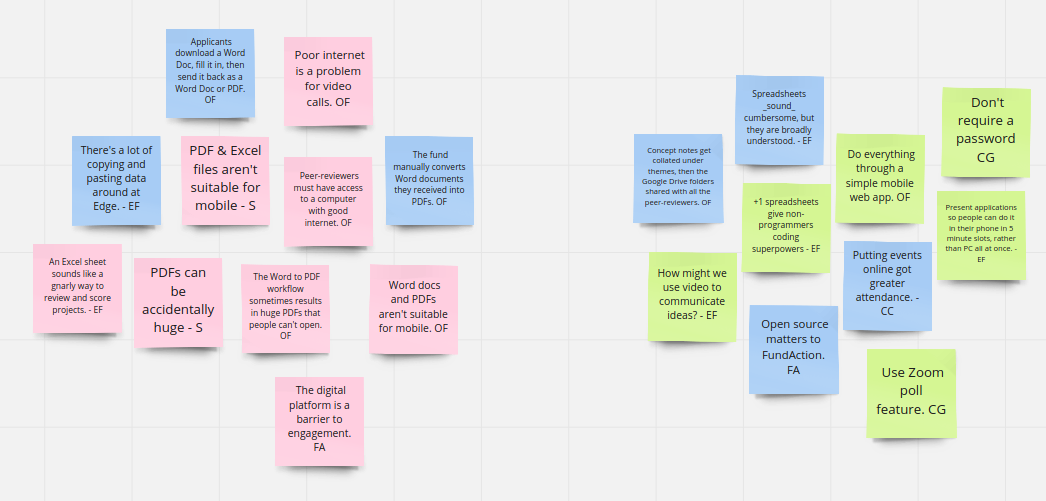Week 5 - Looking for Themes
We’re exploring the question: How might tech support communities to carry out collective decision-making and collective design?
Short version:
- We listened back to our interviews from the last two weeks, noting down the ‘insights’, ‘opportunities’ and ‘problems’ that we heard 🎧
- We reflected of our own experiences of being involved in collective-decision making in Liverpool SOUP and Who Wants To Be 🪞
- We began affinity-mapping our findings (276 post-its!) on a Miro board 🤯
Longer version:
We listened back to our interviews
Over the last two weeks we generated nine hours of interview recordings. This week we spent almost all of our time carefully listening back, transcribing the most interesting parts then identifying things that stand out. (We promised to delete the recordings as good practice, so it’s worth getting good transcripts.)
Working back through the transcripts, we were looking for:
- Problems - things we heard that sounded difficult, painful or onerous. These could be problems faced by the organisation or ones they’d seen elsewhere.
- Insights - things we found surprising or significant.
- Opportunities - things we thought could be improved (possibly by tech) or good practice that could be replicated elsewhere.
Ian and I each revisited six interviews and added comments in these three categories to the transcripts in Google Docs.
This part is tough - it takes a lot of time and it’s not obvious why you’re doing it until it’s done. But we’ve done this many times before and it’s one of those things where you just have to trust in the process, crank the handle and look forward to the results!
We reflected on our own experiences of collective decision-making
We’ve both also been involved in some social forms of collective decision-making about money that we wanted to bring to the work.
Paul’s worked on the Panel for Liverpool SOUP and (years ago now) Ian took part in “Who Wants to Be”, an ‘ask the audience gameshow’ where collectively the participants try to decide how to spend their pooled money.

The thing that sets Liverpool SOUP and Who Wants to Be apart is that they’re fun. They’re exciting, sociable evenings that people want to go to. They don’t have to “recruit” peers - by putting on an evening where people can come together, connect, make friends in their community, the decision-makers come to them. It’s inspiring and we’re wondering how to inject a bit of that feeling.
Affinity mapping - work in progress!
Next came the task of synthesising the hundreds of notes we’d made into some sort of order!
We opted to use affinity mapping to do this. This is a process where you begin clustering related notes close to one another. Natural groups then start appearing for further analysis. It helps us find patterns in what we’ve heard and figure out what we’ve learnt together.
It’s exciting when you see groups take shape that contain notes from a range of interview participants.
It’s early days with this, but to give you an idea of what’s happening here’s two related groups that emerged:

There’s loads of these groups (feel free to take a look at the full Miro board). Next week we’ll finish this, prioritising the insights that will lead us to better answer the question
“How might tech support communities to carry out collective decision-making and collective design?”
